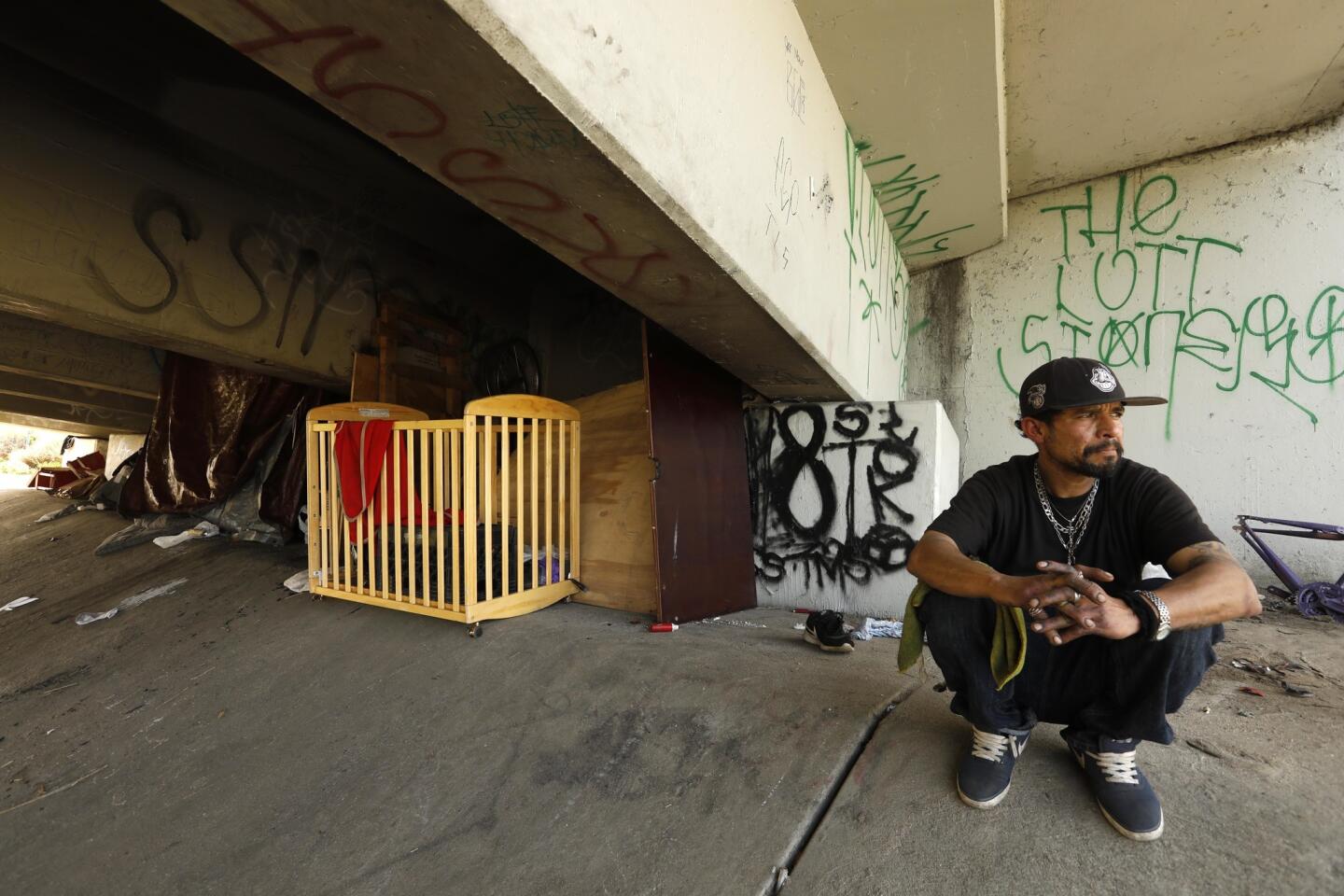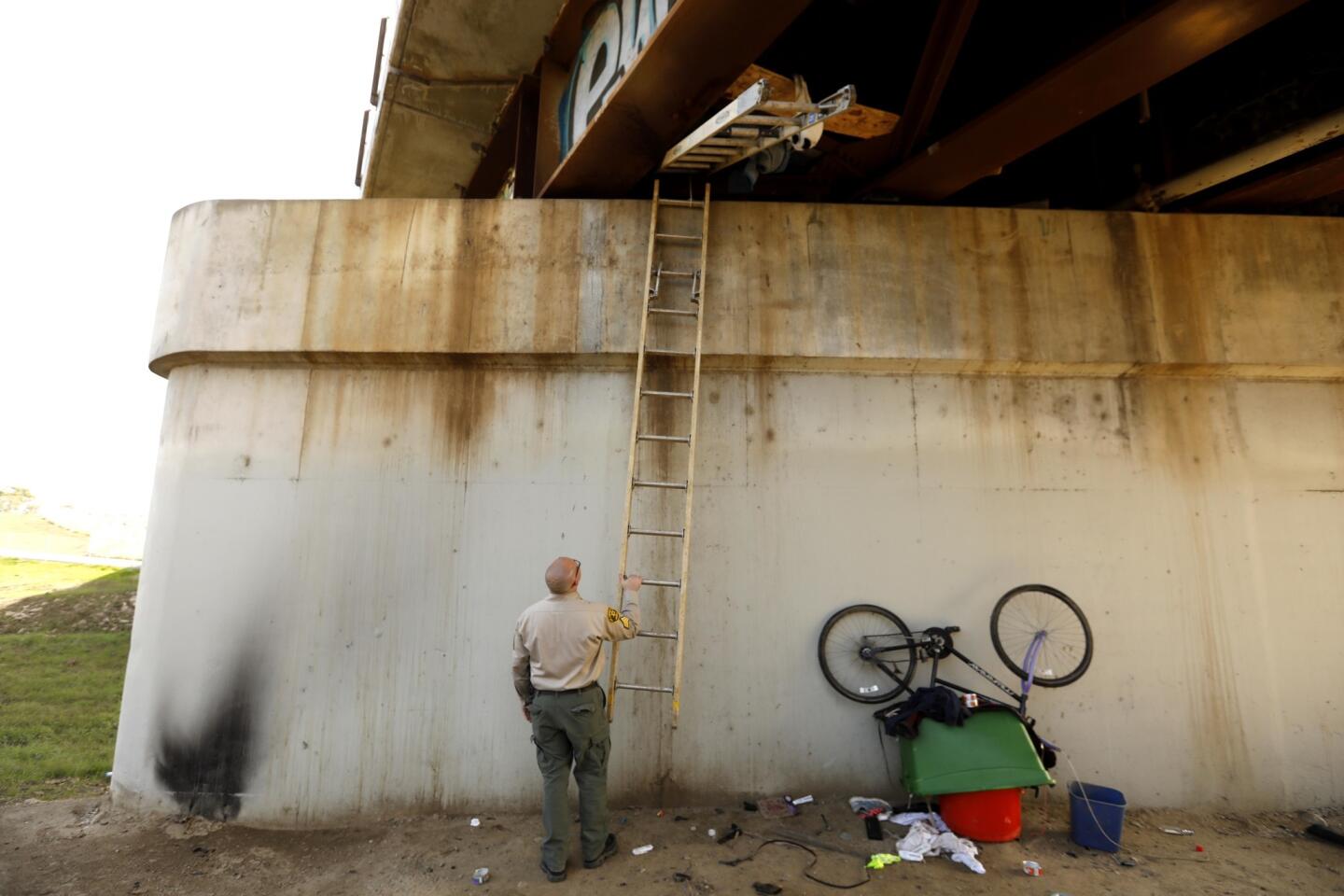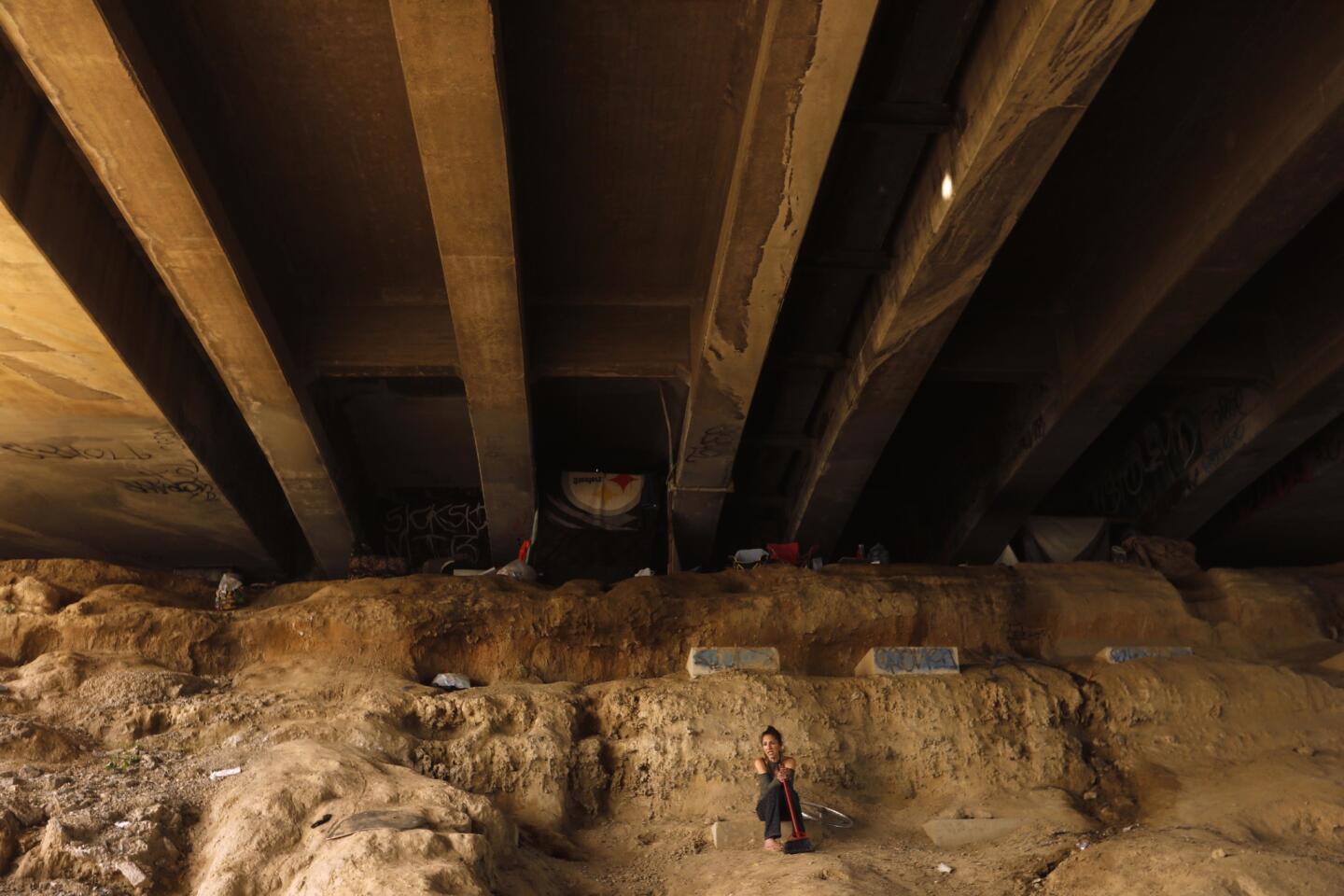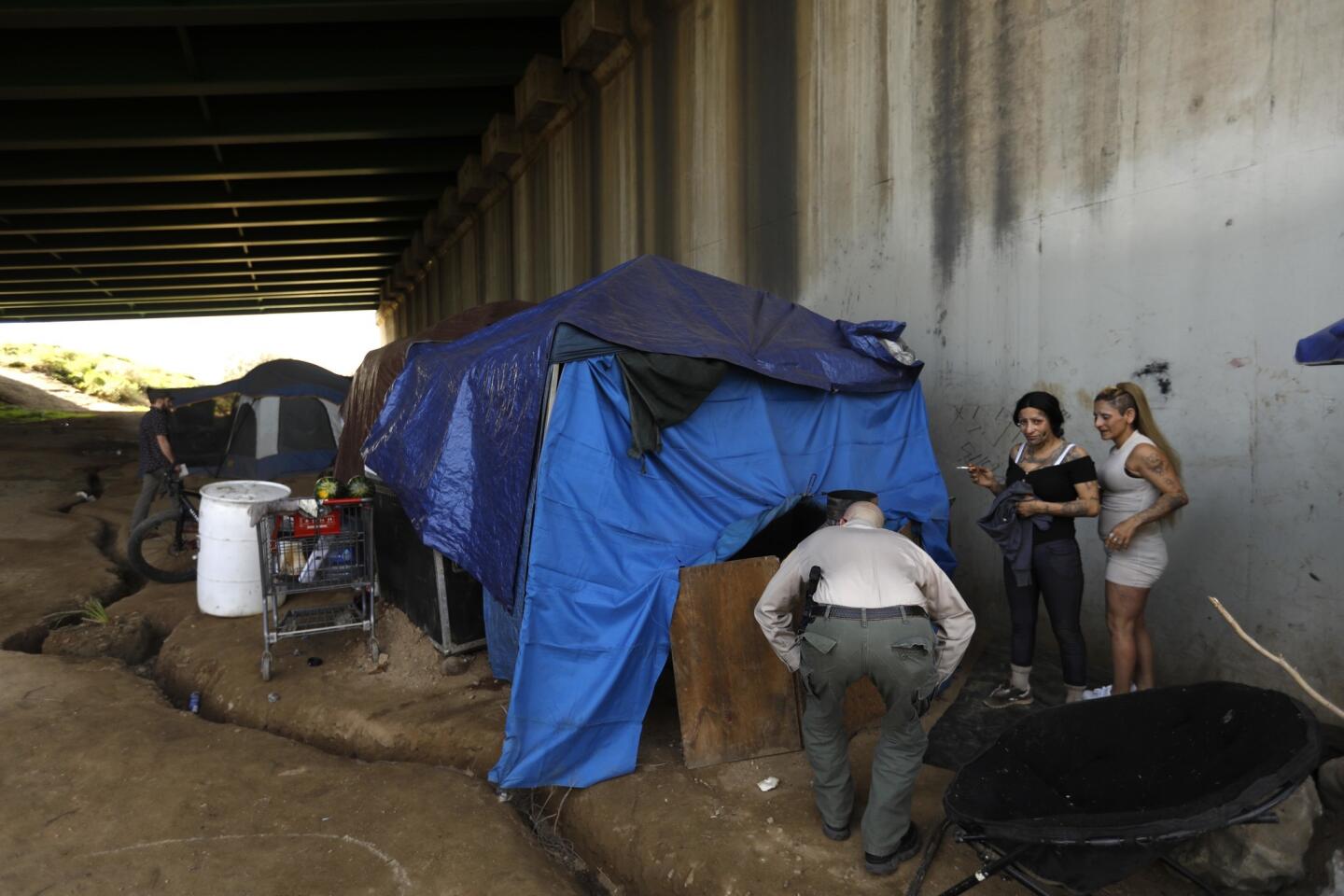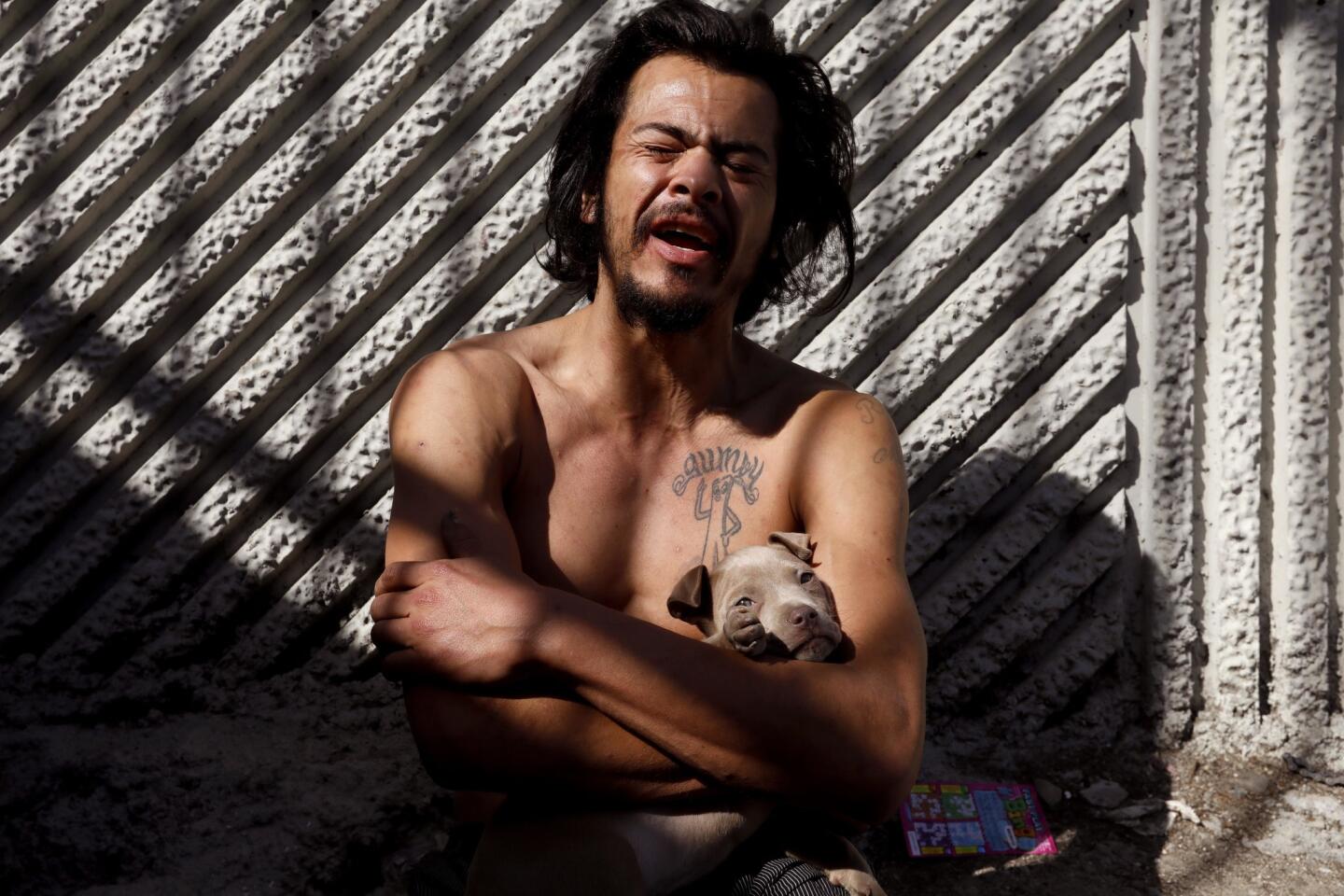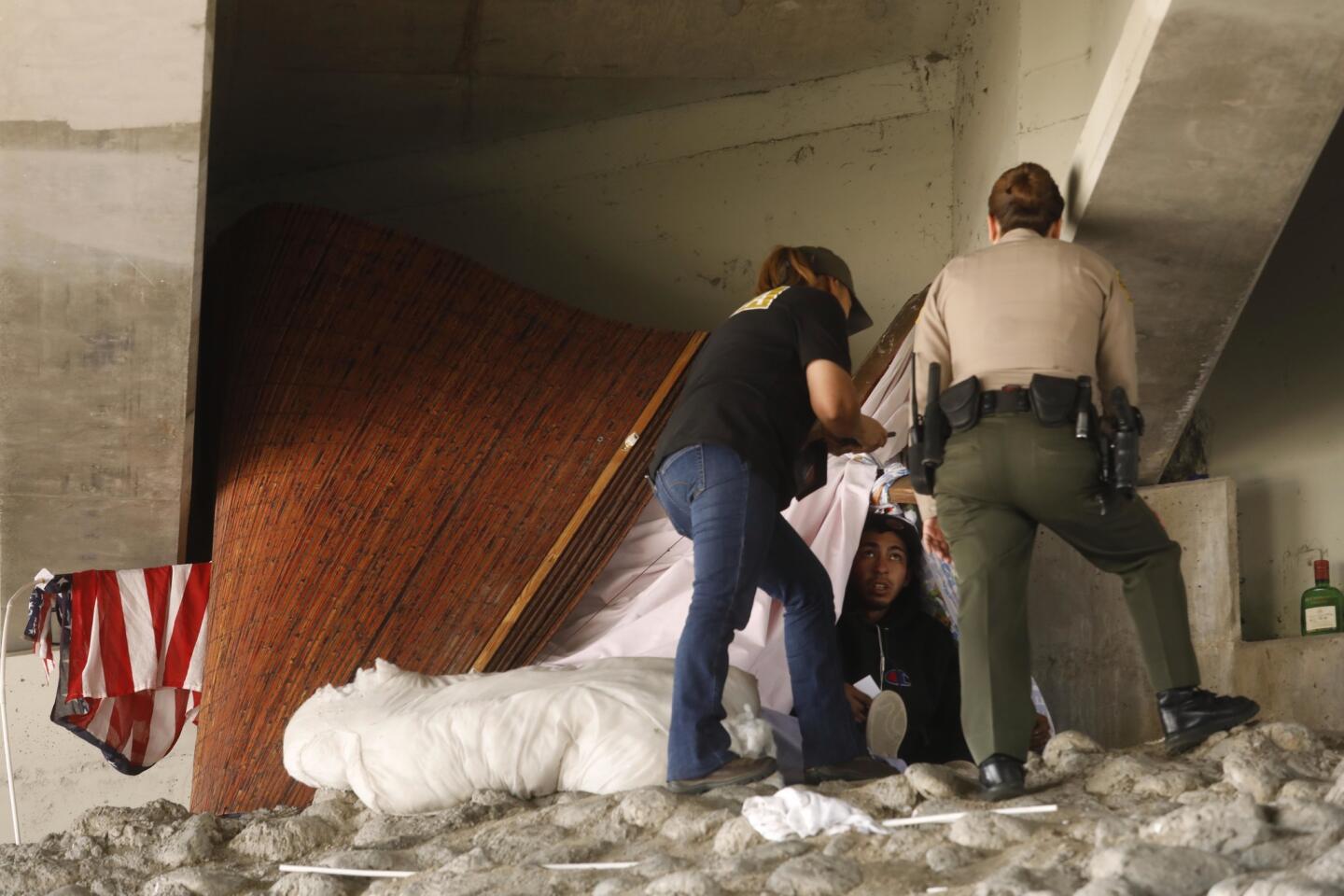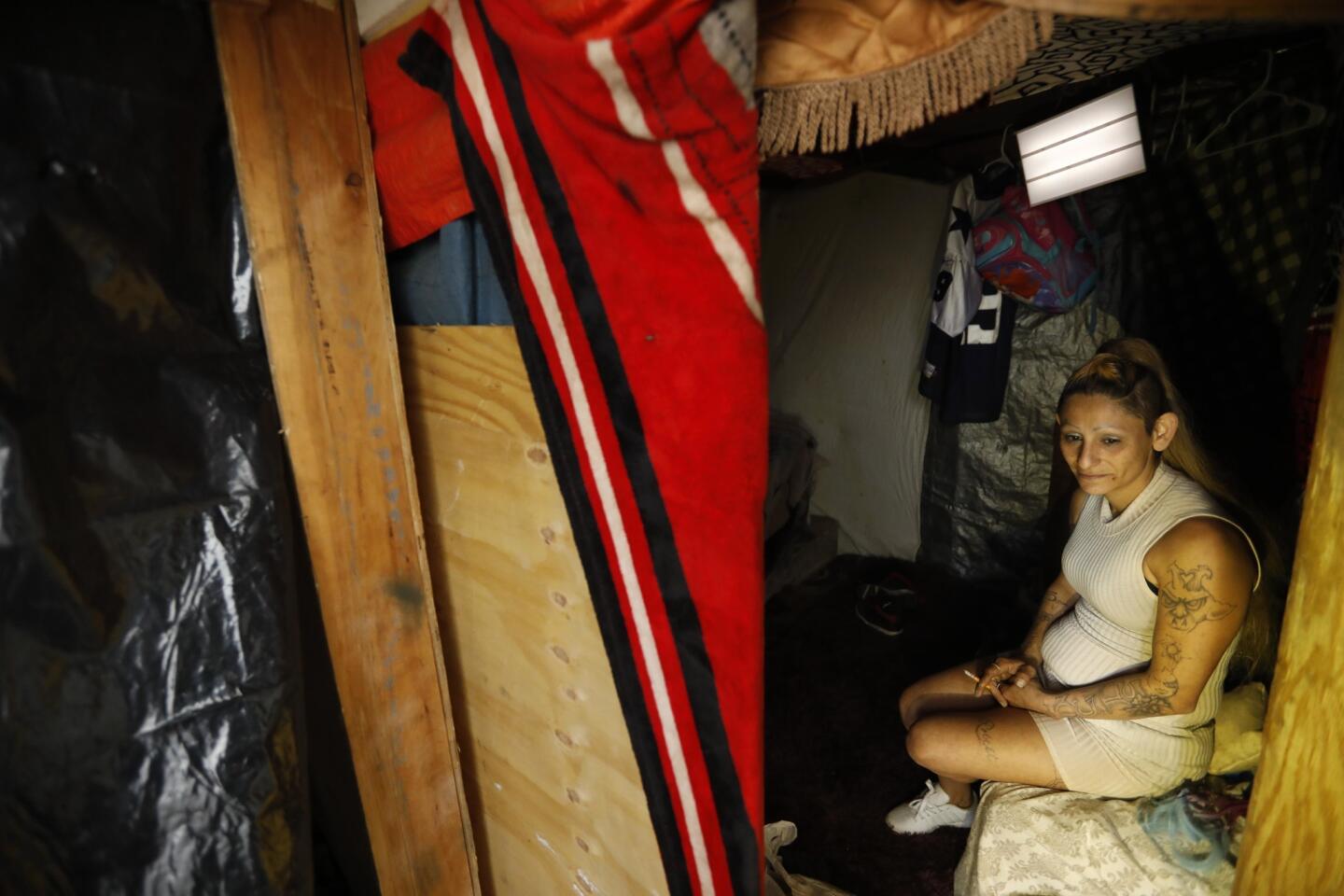As homelessness crisis grows, the Trump administration has made few new efforts
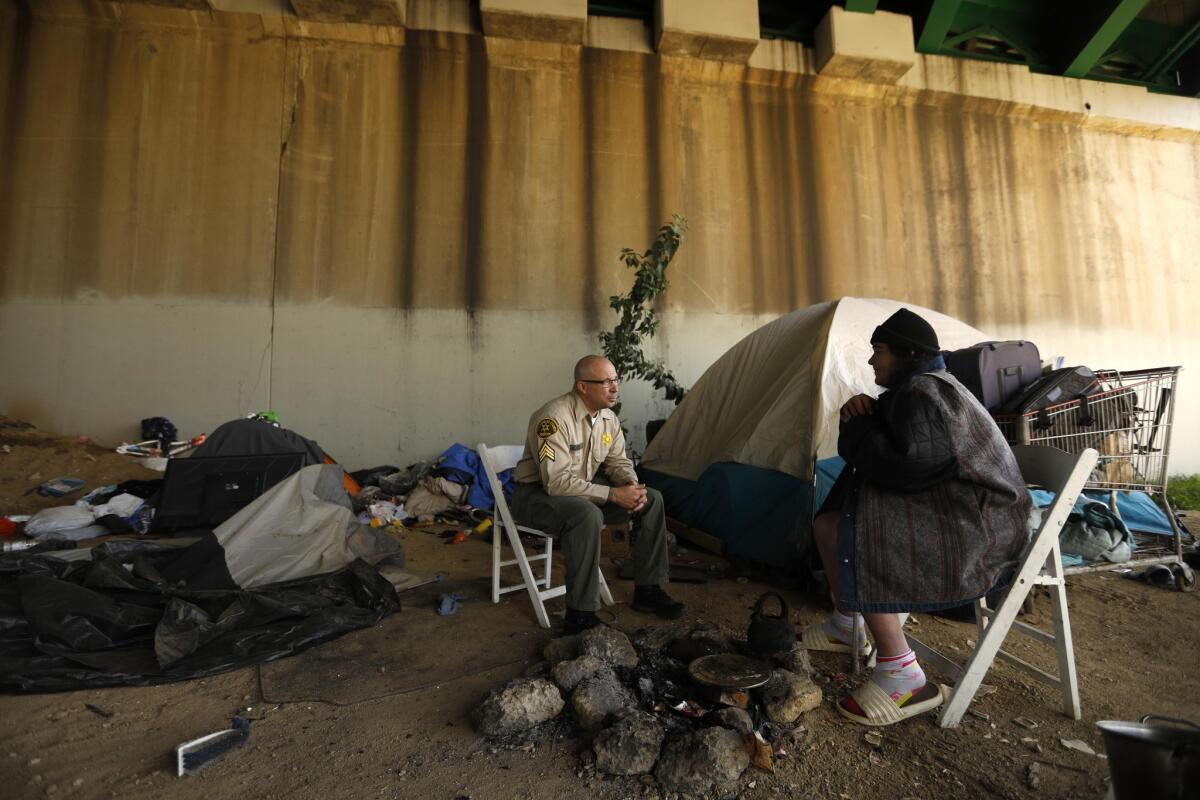
WASHINGTON — As homelessness has worsened in many American cities, including Los Angeles, the Trump administration has largely neglected the issue, proposing few new initiatives and pushing cuts to housing programs that, if adopted, would likely make the crisis worse, according to analysts.
In budget proposals, the administration has repeatedly but unsuccessfully tried to take money from the Department of Housing and Urban Development — cuts that could cause homelessness to worsen significantly if they were ever put into effect, experts say. In addition, they said, by trying to walk back Obama-era policies designed to give the most vulnerable groups access to shelter and housing, administration policies could increase their chances of homelessness.
The administration has “continually signaled its lack of interest in addressing housing and homeless issues,” said Carolina Reid, of UC Berkeley’s department of city and regional planning.
A HUD spokesperson said in a statement that the department is “making significant progress to reduce homelessness in this country.”
“As HUD continues to invest record funding, we recognize that money alone won’t end homelessness,” the spokesperson said, speaking on condition of not being identified by name, under administration policy. “State and local governments across the country are increasingly realizing that ending homelessness requires a deep commitment to those individuals and families living in our shelters and on our streets.”
Defenders of the administration note that the amount of money going to state and local service providers to care for homeless people has not significantly changed under Trump and his Housing secretary, Ben Carson.
The administration’s funding of the so-called Continuum of Care program shows “almost complete continuity with the Obama administration,” said Stephen Eide, a researcher at the Manhattan Institute, a conservative think tank.
For its 2020 budget, the administration proposed spending $2.6 billion on homeless services — a 9% increase over the figure requested in 2019.
Both administrations have embraced a “housing first” philosophy, meaning they have allocated significant funds to service providers that aim to move homeless people into housing, then provide further services and support, according to Alec Roberts, executive director and co-founder of Community Housing Innovations, one of the largest homeless service providers in the New York City area.
Service providers that require people to meet work or sobriety requirements in order to receive housing have seen lower levels of funding.
In that sense, the allocation of money to homelessness service providers is “a continuation of Obama’s policies,” Roberts said.
But experts on homelessness say the amount spent on direct services is only a part of the picture.
“Homelessness policy is a relatively small subset of overall HUD policy,” said Paul Webster, vice president of Solutions for Change, a Southern California-based nonprofit that fights family homelessness.
In its housing assistance programs, experts say, the Trump administration has lagged behind at a time when the need has been rising.
“You have to think about homelessness as a symptom of not having enough housing for folks,” said Mary K. Cunningham, of the Washington-based Urban Institute.
Every year since Trump took office, his administration has proposed “draconian cuts” to HUD’s budget, UC Berkeley’s Reid said. “Each time the Trump administration has proposed the housing budget, the secretary is proposing cuts to housing assistance when in fact we need significant investments in housing assistance,” she said.
In the 2018 budget proposal, the administration proposed cutting funds for public housing by $1.8 billion — almost 29% compared with 2017 funding. That budget also proposed large rent increases for the lowest-income households in public housing.
The 2019 budget proposal recommended the largest cutbacks on federal housing aid since 1937. The administration’s proposal would have eliminated Housing Choice Vouchers — which assist low-income households in paying for apartments — for roughly 200,000 low-income households.
The proposed budget also called for rent increases on low-income families receiving rental assistance from HUD and suggested slashing funding for public housing repairs by $3 billion — 47%, compared with 2017.
Congress hasn’t accepted any of those drastic cuts, but every Trump budget proposal is “a threat,” Cunningham said.
The administration’s 2020 budget proposal outlines similar cuts.
It would eliminate money for 140,000 housing vouchers that help low-income households afford places to live. It would also remove $4.6 billion in funding for public housing — more than a 60% decrease from the 2019 level.
Under Obama, HUD Secretaries Shaun Donovan and Julián Castro funded research to figure out best practices to prevent homelessness. Department officials also looked for new solutions to the problem of obsolescence — the number of public housing units that need to be updated every year in order to remain livable.
The current administration has shown little interest in such policy innovation.
Instead, the administration has proposed efforts to restrict who can receive aid, moves that could escalate the homelessness crisis, experts on the problem said.
Reid and other experts pointed to two Trump administration proposals that increased the likelihood that members of vulnerable groups will either lose their housing or not be able to get out of homelessness.
Carson has proposed a rule that would make households that include both U.S. citizens and noncitizens ineligible to receive housing vouchers. Noncitizens haven’t been eligible to receive these benefits, but citizens living with them had under the Obama administration, with a few exceptions.
HUD is currently reviewing the roughly 30,000 comments that the department received about the proposal.
In 2014, about 8 million citizens lived in such mixed-status households. If the administration moves ahead with its plan, many of those people would face the choice of no longer living with their noncitizen family members or trying to afford housing without federal assistance.
When HUD analyzed the likely effect of this change, officials and concluded that it could lead to evictions of as many as 25,000 families, with 108,000 people, from housing units.
Carson justified this proposal in March, saying in a statement that the move would free resources for legal residents.
“Given the overwhelming demand for our programs, fairness requires that we devote ourselves to legal residents who have been waiting, some for many years, for access to affordable housing,” he said.
The administration has also increased homelessness in ways that are harder to quantify, Reid said.
The president’s rhetoric about immigrants and foreign countries likely deters immigrants from seeking housing assistance, even if they’re in the country legally and eligible for government aid, she said.
“Immigrants are much more likely to resist going to find services,” Reid said. “If they are evicted, they’re not willing to go to the court or legal aid agency or to get help.”
They’re not the only group that’s affected by the Trump administration’s budget plans. In May, HUD proposed weakening the Equal Access Rule — which guarantees that LGBTQ individuals will have access to homeless shelters. If the proposal is adopted, shelters would have permission to consider factors including “privacy, safety, practical concerns, religious beliefs” and would be allowed to turn LGBTQ individuals away.
That announcement came a day after Carson told the House Committee on Financial Services that he didn’t plan to change the Obama-era rule.
Advocates for homeless people say the biggest step the administration could take to ease the crisis would be to fund efforts to make housing more affordable, especially by expanding the rental voucher program.
“Providing new housing vouchers is the single most effective thing the federal government could do to reduce homelessness,” said Will Fischer, a senior policy analyst at the Center on Budget and Policy Priorities. “The fact that they’re not proposing or moving towards any effort to address those needs explains why homelessness has been allowed to increase.”
The research is clear, Cunningham said: Housing vouchers have been shown to reduce homelessness. If an administration expanded those programs, homelessness would likely decline.
“This is a totally solvable problem,” she said. “What we have is a problem of political will.”
More to Read
Get the L.A. Times Politics newsletter
Deeply reported insights into legislation, politics and policy from Sacramento, Washington and beyond. In your inbox three times per week.
You may occasionally receive promotional content from the Los Angeles Times.
